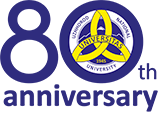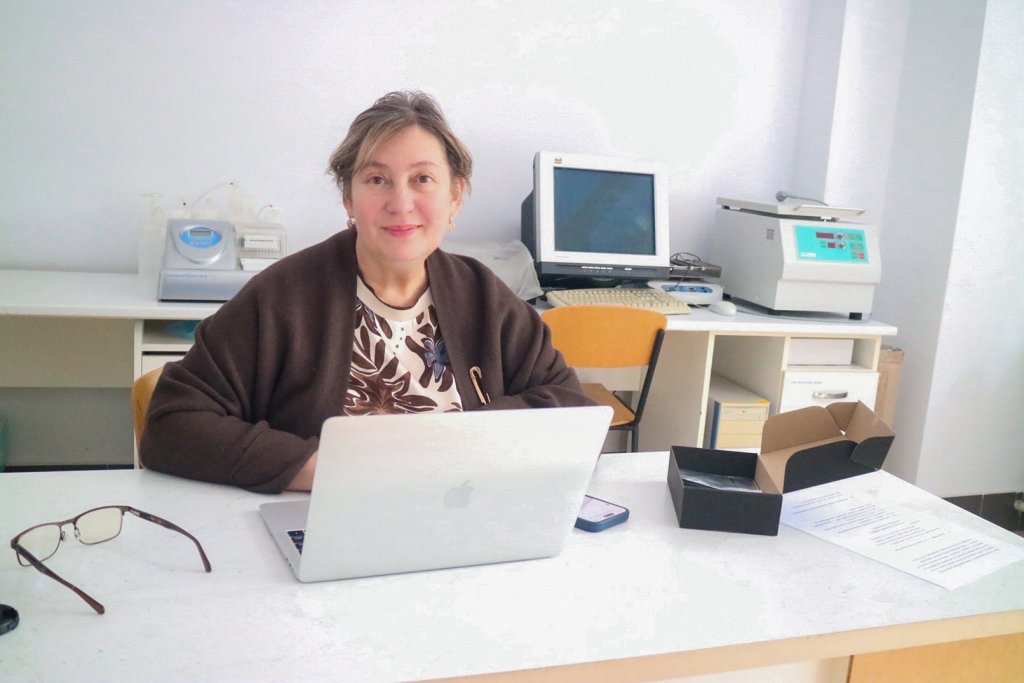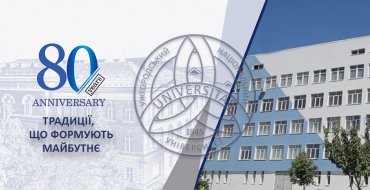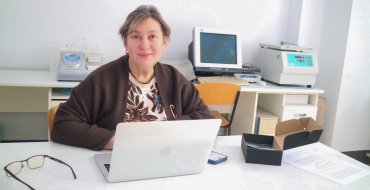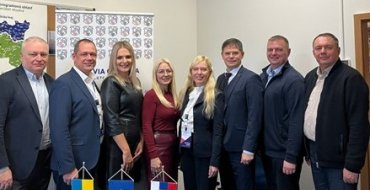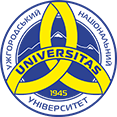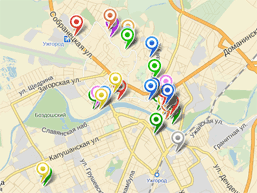Microbiome and PTSD: Uzhhorod National University Scientists Are Looking for the Key to Psychological Recovery After War
At a time when Ukrainian society is experiencing unprecedented psychological challenges, scientists are looking for effective ways to help those who have experienced the traumatic experience of war. One of these areas is studying the role of the microbiome in the development and overcoming of post-traumatic stress disorders. About the innovative scientific project “Innovative approaches to the analysis and correction of the microbiome in the diagnosis, prevention and treatment of post-traumatic stress disorders”, which is being implemented at Uzhhorod National University, its head, Professor, Doctor of Biological Sciences Nadiia Volodymyrivna Boiko, tells us.
— For many years, you have been conducting research based on the analysis of the microbiome. As for the diagnosis, prevention, and treatment of post-traumatic stress disorder, this is undoubtedly a relevant topic for Ukrainians today. So please tell us about the path that preceded the beginning of this project.
— Yes, it all started for me quite a long time ago — back when I worked at the University of Pennsylvania as a visiting professor and devoted most of my time to studying mucous membranes. It was work with microbial agents — even before the Human Microbiome Project was born. We studied oral tolerance, that is, the ability of the immune system not to overreact to harmless antigens. In other words, we studied molecules — the components of food — and the reaction of intestinal microorganisms to them. Back then, the research was conducted in gnotobiotic conditions using knockout animal models (mice), tissue fragments, etc., and we found out what kind of immune response each component causes. This led us to the conclusion that it is important to understand the mechanisms of interaction of the entire pool of immune cells in our body with microorganisms and food antigens. This experience ultimately led me to establish the Center for Molecular Microbiology and Mucosal Immunology at UzhNU after my return from the USA.We came to the study of the microbiome itself when we started working in clinical trials and cohort projects. The first of them started in 2009. We studied traditional food, its micro- and macronutrients, proteins, vitamins, as well as how they affect microorganisms, our body and what immune response they form.
Post-traumatic stress disorder came into our field of attention due to military operations in the country. In recent years, we have discovered different compositions of human intestinal microorganisms, in other words, the diagnostic ratio of key representatives of the intestinal microbiome, which allows us to carry out targeted correction to prevent overweight, metabolic disorders and the development of type 2 diabetes. After all, changes in the intestinal microbiota can trigger the occurrence of diseases associated with metabolic disorders. Disruption of the microbiome directly affects the development of atherosclerosis. This is the topic of dissertations and other scientific research by my current colleagues — Tamara Meleshko, Oleksandra Pallah, Svitlana Burmei. Atherosclerosis, as is known, is closely related to cardiovascular diseases. We consider the microbiome as a potential predictor that can be adjusted with probiotics, drugs or individual nutrition. Such adjustment can prevent the development of cardiovascular diseases. Therefore, we have always maintained close clinical cooperation with doctors Taras Chendei, Vasyl Lohoida and Mykola Rishko. We conducted the first cohort study of the oral and intestinal microbiome of Ukrainians and its connection with the processes of plaque formation in atherosclerosis.Of course, the problem of atherosclerosis and other diseases did not recede into the background. However, with the beginning of a full-scale invasion, we clearly realized that it was necessary to focus attention on stress and psychological trauma. It is worth noting that the presence of a traumatic experience does not necessarily mean the development of post-traumatic syndrome - this happens only in about 10% of people, if the process is not stopped in time. The physiological component of this condition is often underestimated in the world.Undoubtedly, a person who has experienced psychological trauma as a result of military actions needs the help of clinical and social psychologists. However, speaking of rehabilitation, we must not forget that, in addition to physical or psychological, there is also physiological rehabilitation. We are talking about those processes that we do not control consciously, since they are not directly related to the central nervous system, but depend on subconscious mechanisms. And this is where the microbiome plays a major role.
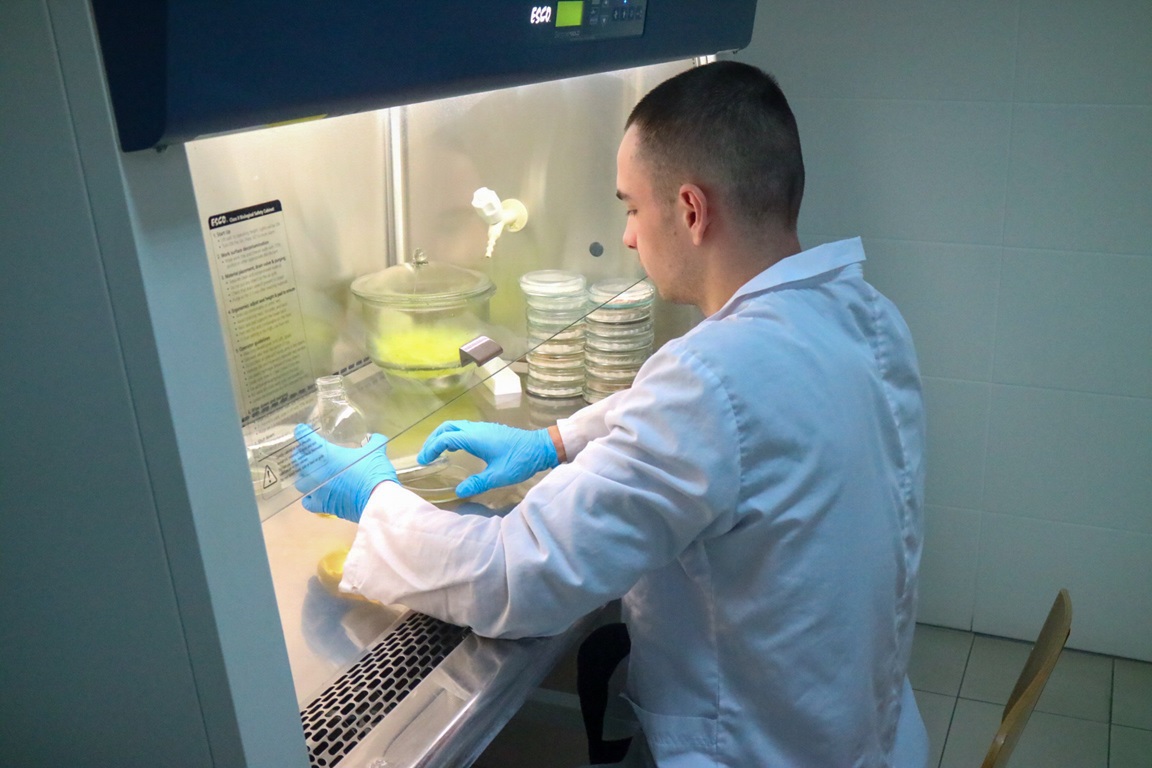
— Are there already certain developments in the world that confirm the connection between the microbiome and post-traumatic stress disorder?
— Yes, new studies are emerging that confirm the connection between the microbiome and various neuropsychological conditions, including autism. At the same time, based on evidence-based medicine, we cannot yet say that there is a specific type of microbiome that directly causes the development of this disorder, or that we already know how to prevent it. This is a relatively new area of research that is actively developing, so significant discoveries are still ahead.When we started working on the project, we studied publications by Israeli scientists. As you know, the war in Israel has been going on with varying intensity for many years. Israeli researchers have studied the microbiome of their own military personnel. We decided to go further — to take into account not only the results of the tests of the military, but also civilians from the occupied territories, as well as internally displaced persons, because they can also be diagnosed with post-traumatic stress disorder. Later, we realized that this could also apply to residents of relatively safe regions of the country, because even if we do not see hostilities directly, we are constantly in the field of disturbing news, worried about relatives and friends who may serve in the military. Such prolonged stress can also cause the development of post-traumatic syndrome.When we studied atherosclerosis, one of the most unexpected discoveries was that a disturbed microbiome directly correlates with the level of chronic anxiety. It was then that we decided to adapt the approach of our Israeli colleagues, who analyzed saliva samples to determine possible triggers for the development of post-traumatic stress disorders. They managed to identify these markers for their cohort, but we needed biomarkers specifically for the Ukrainian population. In addition, the issue of targeted correction of the intestinal microbiome remained open.In the world of microorganisms, as in the world of people, everything is relative. It is impossible to say unequivocally that a microorganism is “good” or “bad” - its role depends on where it is located in the body. In one environment, it can be useful, and in another - harmful. The same applies to the individual characteristics of a person: in your body, a microorganism may manifest itself differently than in mine. That is why we need to transition from classical to individualized medicine. Our Center proves this not in words, but in deeds - because individualized medicine is already becoming evidence-based. We work in the 3-P format — preventive, predictive, and personalized medicine.Based on the research of our Israeli colleagues, we also began studying saliva samples. However, it is not only important from which niches the microbiome is studied, but also what is the methodology for its testing: the quality of the analysis is affected by the purity of the isolated DNA, the depth of sequencing, the level of error, the libraries used in bioinformatics, and the interpretation of the data. We took their project as a model, but developed our own analysis system. The main goal of our work is to identify biomarkers that will help to timely detect and prevent the development of post-traumatic stress disorder, and if this cannot be avoided, to find the most effective methods of treatment.
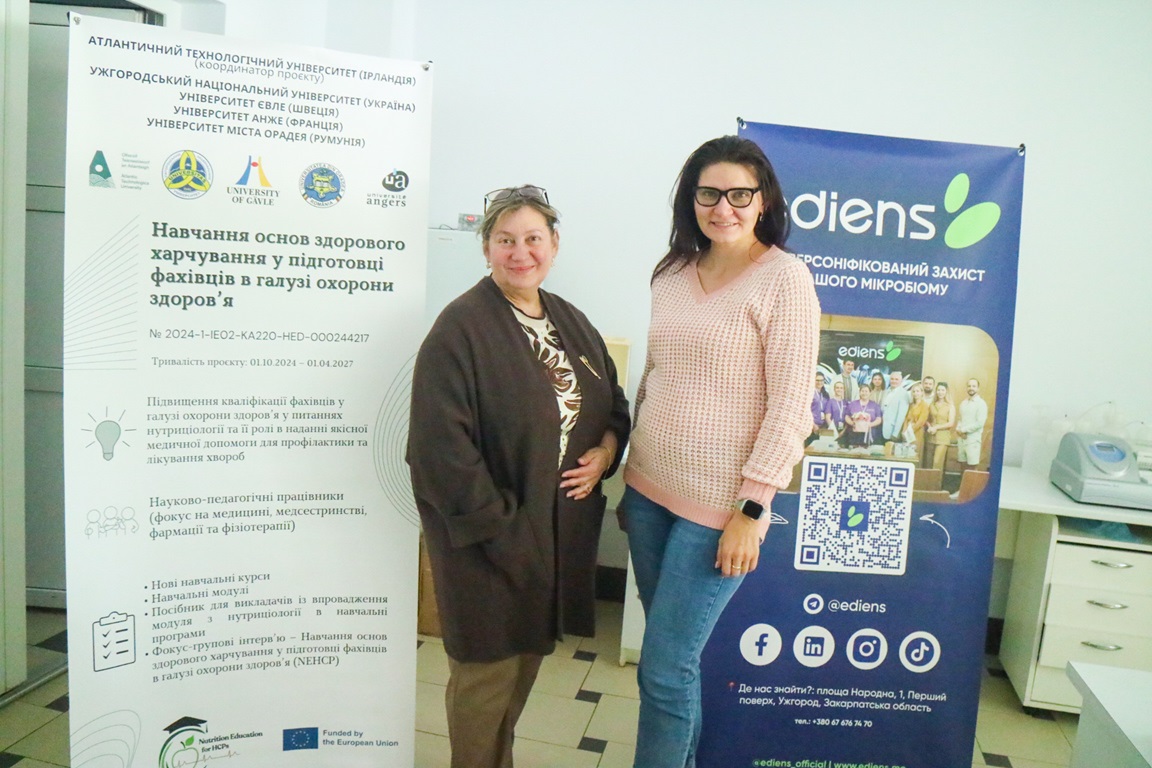
— What stage is your project at now? What have you already managed to do?
— We are now about halfway through the project. We started work when the war began. Without waiting for the results of the competition or confirmation of the grant, we just worked. And we are no exception — today everyone is trying to do everything they can, where they are needed, for the sake of help and victory. That is why I don’t even remember the exact start date. Formally, it was 2024, but we took the first steps back in 2022. The examination of people began, it seems, in 2023. These were military personnel, internally displaced persons with diagnosed PTSD, as well as those who had suffered trauma but did not seek official diagnosis. We also formed a control group of people without PTSD to compare the results.First, we studied the microbiota — this is not a genetic, but a cultural microbiological analysis (culturomics). We immediately determined antibiotic resistance and personalizedly selected pharmabiotics. We are currently sequencing the first 200 samples, some of which are at the interpretation stage. As a result, we will isolate markers to create a diagnostic test system. These should be those microorganisms that are consistently detected in the saliva or intestines of people with PTSD. So, our first task is to find microorganisms that are triggers, that is, the starting mechanisms for the appearance of PTSD. The next task is to change the diagnostic ratio, adjusting it in the desired direction. We do not use the principle of antibacterial therapy - that is, we do not seek to destroy or completely remove unwanted microorganisms. On the contrary, having determined the diagnostic ratio, we try to adjust it as accurately as possible.Microorganisms are directly related to our psychological state. Very often, drugs used to regulate it are called psychobiotics. They can affect the production of serotonin, dopamine, gamma-aminobutyric acid - that is, help restore psychological balance.At the same time, we want our research to be useful for the civilian population. After all, I hope that the war will end someday, and then we will need to think about the psychological recovery of the entire society. I would like us to not limit ourselves to preventing PTSD, but also consider other neurodisorders - autism, burnout syndrome, depression, dementia, Alzheimer's and Parkinson's diseases. — With whom do you collaborate within the project?
— Our colleagues in the project are, first of all, IT specialists. Pavlo Fedorko and Mykhailo Klymenko are working on its improvement. For the project, we use the algorithm for individual microbiome correction and the database of biologically active substances that we have already developed at “Edience”. That is, we combine information about nutrition and microorganisms, but supplement it with new data from cohort studies Vasyl and Slava Kruchanytsia from the Regional Psychiatric Hospital located in Uzhhorod also collaborate with us. This is where military personnel diagnosed with PTSD are admitted. We have established cooperation with the Uzhhorod City Multidisciplinary Clinical Hospital — thanks to the support of the head physician Oleg Holub and the medical staff, this work became possible. We have concluded an official agreement, because without the participation of clinicians it is impossible to conduct a high-quality study.In May, we signed a scientific cooperation agreement with the State Institution “National Institute of Therapy named after L. T. Mala, NAMS of Ukraine” (Kharkiv) represented by Professor Olena Kolesnikova. Our cohort sample includes military personnel and internally displaced persons diagnosed with PTSD. The choice of Kharkiv was due to several factors. First, the region is a frontline region and has a high concentration of people who have experienced combat or psychological stress, which makes this cohort particularly relevant for PTSD research. Second, the Institute of Therapy named after L. T. Mala has a strong clinical base and experience in psychosomatic medicine and biochemical research, which provides a comprehensive approach to assessing the condition of patients. Third, cooperation with Kharkiv scientists makes it possible to combine clinical experience with our laboratory methods of microbiome analysis to obtain evidence-based data on biomarkers of stress-associated disorders.Our colleagues do not receive financial compensation, but they help us with the collection of material. We also cooperate with the Danylo Halytskyi Lviv National Medical University, because all microorganisms function in the context of the immune system. Unfortunately, our university does not yet have a flow cytofluorimetry device, so we are implementing this complex project together with our Lviv colleagues who determine cellular immunity.This is extremely important, because this year the Nobel Prize was awarded precisely for the discovery of T-regulatory cells that prevent or modulate chronic inflammation. Our Lviv colleagues — Valentina Chopiak and Iryna Kril — determine these cells, their ratio, that is, they study cellular immunity of the blood, while mucosal immunity (of the intestinal mucosa) is studied here.Direct daily work in the project is carried out by Oleksandra Pallah, Svitlana Burmei and Lesya Yusko. Oleksandra Pallah is the responsible executor of the project, so she bears the greatest burden — from practical tasks to reporting.It is worth mentioning the mathematical component separately: the algorithm created by Volodymyr Drobnych is currently being transferred to a cloud service. We strive for the project not to be limited only to Transcarpathia, because the country is large, and it is important for us to cover the widest possible range of participants. In parallel, we participate in several European projects designed to change approaches to training doctors, in particular in the field of nutrition. This is extremely important, because even rehabilitation specialists often underestimate the impact of physiological factors on mental health.
— Can we talk about any intermediate results?
— Of course, we can. We adhere to the approach in which one to three dissertation projects are fixed in the main scientific direction, which ensures the systematicity and sustainability of our research.
The project demonstrated the potential of a prototype device for digital processing of saliva smears for the rapid diagnosis of post-traumatic stress disorder (PTSD), developed as part of the dissertation research of graduate student Sviatoslav Borshosh. This approach combines microbiome analysis with innovative digital technologies, contributing to the implementation of the principles of personalized medicine in the diagnosis of psycho-emotional disorders. Postgraduate student Maksym Ivashko is currently investigating the metabolic profiles of already selected psychobiotics, studying their bioactivity and impact on the microbiome. In parallel, postgraduate student Ivan Lipei is conducting research on the pharmacokinetics and pharmacodynamics of selected drugs, which will allow forming a scientifically sound basis for further clinical trials.Thus, within the project, a holistic scientific ecosystem is being formed, which combines fundamental microbiome research, digital technologies and experimental pharmacological approaches aimed at creating personalized strategies for the correction of PTSD.We have already formed a database and developed technical conditions for identifying food products that can reduce the risk of developing PTSD. We are currently actively testing these dietary recommendations, combining data on the microbiome, psycho-emotional state and nutritional factors.Aseparate area of work is headed by Oleksandr Mynia, who is engaged in setting up the production of probiotic drugs based on our own strains. It was he who determined the optimal conditions for cultivating and fermenting microorganisms, which allows us to move from laboratory developments to pilot production within our Center.
In addition, we collaborate with Natalia Korol, who, using computer modeling (in silico), selects bioactive molecules with the potential to influence the neurobiological mechanisms of PTSD.Our laboratory has isolated its own strains of microorganisms with probiotic properties, which are already used in the project as the basis for creating new-generation psychobiotic drugs.So we are moving towards creating a full cycle - from fundamental research on the microbiome to practical biotechnological solutions. The ultimate goal is personalized strategies for the prevention and treatment of PTSD, combining nutritional, probiotic and digital approaches.
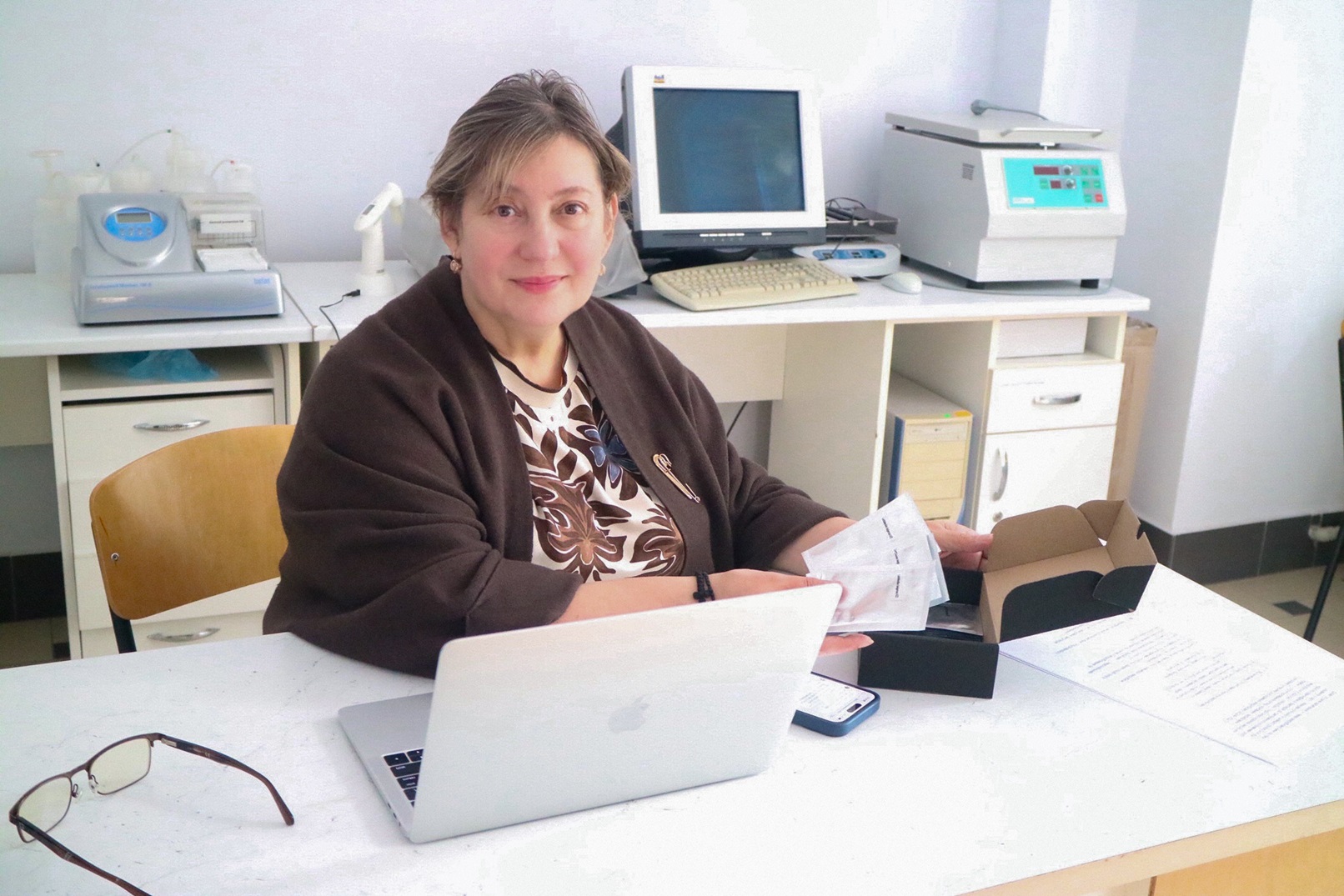
— What aspects of the research do you intend to deepen in the future?
— Our main task now is to statistically prove the reliability of the results obtained and confirm that our hypothesis works. We already have over 200 biological samples that we are comparing with each other to obtain reliable data to confirm the theory.
We have signed a cooperation agreement with the company “Biolab Tech”, which will manufacture and release tests for rapid diagnostics of PTSD. Testing of a new component of the system is currently underway, which, if successful, will allow us to create a two-component model of PTSD prevention. By the end of the project, we plan to have ready-made prototypes and proven algorithms.
Many processes are taking place in parallel, as the project has a limited time frame. We actively participate in scientific and technological events - in particular, in the Industrial Hackathon in Kyiv, where we presented our innovative solutions, drugs and metabolites. It was thanks to this event that we signed an agreement with LLC “Firma “Favor”” to release a new line of dairy products using our strains of microorganisms with probiotic properties.
It is important that we work not only with living cultures, but also with their metabolites - this is the direction that Maksym Ivashko is researching, and the first positive results have already been obtained.
Another promising direction is cooperation with the company FreshPlants LLC, within the framework of which we are developing functional food products based on city farming technologies. In particular, we are talking about a line of salads and greens enriched with probiotic compositions aimed at normalizing the intestinal microbiome and correcting the condition in PTSD.
We are not waiting for the completion of the clinical part of the research to begin modeling and implementation - all processes are unfolding simultaneously. There are still many interesting ideas and new directions ahead, which we will definitely share with you.
